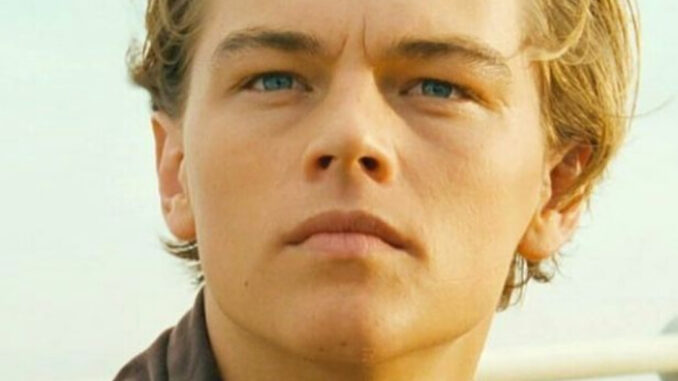
The screen flickers to life, a low, familiar melody swelling in the background, a whisper of an echo from a bygone era. We see glimpses – polished wood, gilded banisters, the endless, unforgiving expanse of the Atlantic. Our breath catches. Is it a dream? A retrospective? Then, a flash – a silhouette against the setting sun, a mop of tousled hair, a knowing, mischievous grin. A gasp, collective and visceral, ripples through the digital ether. Jack Dawson. He's back.
This isn't just a trailer; it’s a phantom limb suddenly reattached, a wish whispered into the universe and inexplicably granted. The "Titanic 2 Concept Trailer Brings Jack Back in a Stunning Revival" isn’t merely a glimpse of a hypothetical sequel; it’s a narrative intervention, an audacious act of digital necromancy that challenges the very foundations of one of cinema’s most beloved and tragic love stories.
The "stunning revival" lies not in the plausibility – for logic is instantly jettisoned into the icy depths – but in the sheer audacity and emotional resonance of the concept. How? Does it matter? The trailer offers no explanations, only fleeting, tantalizing visions. Perhaps he was found frozen, preserved in the deep, only to be resuscitated by futuristic science. Perhaps it’s a dream, a feverish hallucination of an elderly Rose, haunted by the specter of her one true love. Or, most potently, perhaps it’s simply the unshakeable desire of millions of fans, projected onto a screen, manifesting a "what if" so powerful it transcends reality.
Imagine the opening shot: an old, weathered hand, adorned with the Heart of the Ocean, trembling as it reaches towards a news report or an official document. A blurred photograph of a man, impossibly young, impossibly familiar. Then, the first clear shot of him. Not an aged, weary Jack, but the vibrant, audacious artist from the steerage deck, eyes still bright with youth's audacious spark. The trailer doesn't just show him; it resurrects him, every shimmering pixel imbued with the raw, aching tenderness of a love lost too soon.
The brilliance of the concept trailer lies in its ability to evoke an instant, powerful surge of conflicting emotions. There's the thrill of reunion, the sheer, unadulterated joy that the sacrificial ending, so poignant and heart-wrenching, might be undone. It speaks to our deepest human yearning for second chances, for the rewriting of history, for the triumph of love over even the most insurmountable odds. A part of us, the eternal romantic, screams, "Yes! He deserves to live! They deserve to be together!"
But then, a chilling question follows, a disquieting whisper from the back of the mind: At what cost? The tragedy of Jack's sacrifice is integral to the enduring power of Titanic. It's what elevates their fleeting romance to mythic status. His selfless act, telling Rose to "never let go," even as he did, cemented their love as pure and eternal. To bring him back, however stunningly, risks diminishing that very legacy. Does it cheapen the profound beauty of his death, turning a timeless love story into just another narrative that couldn't quite bear its own finality?
The concept trailer, by its very existence, becomes a commentary on our relationship with fiction, with memory, and with the stories that shape us. It’s an exercise in wish fulfillment, a digital prayer answered, yet it leaves us with an uncomfortable, compelling tension. The "stunning revival" is precisely that – stunning – because it pulls at the threads of a tapestry we thought complete. It asks us to imagine a world where the unsinkable love actually survived, where fate could be cheated, and where the most heartbreaking goodbyes could, impossibly, be reversed.
As the trailer fades, leaving behind only the echo of that familiar melody and the lingering image of Jack's impossible smile, we are left to ponder. This "Titanic 2 Concept" isn't just about a film; it’s about the enduring power of a story, the unbreakable hold of its characters on our collective imagination, and our own innate human desire to rewrite the endings we find too painful to bear. It reminds us that some loves, even when separated by a century of ocean and a fictional iceberg, are simply too potent to ever truly die, even if their "stunning revival" is merely a flicker on a screen, a tantalizing dream of what might have been. And for a fleeting moment, we allow ourselves to believe.